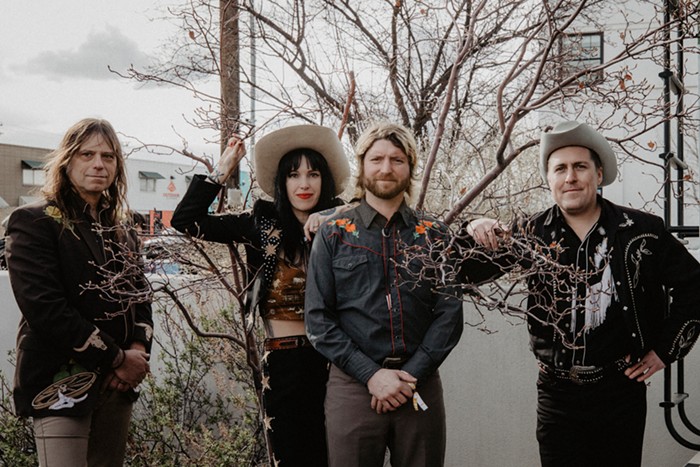There are plenty of good reasons why the Memphis-based rock band Zuider Zee never hit it big. Take their name, for example, which came from a Dutch bay that was dammed and turned into dry land, as mentioned in the children’s book Hans Brinker. (Not that the group’s earlier monikers—Thomas Edisun’s Electric Light Bulb Band; Black Brown Orange and Gray; Fair Murphy Wormwood—were any better.)
There’s also the affinity that Zuider Zee’s singer, guitarist, and chief songwriter Richard Orange had for the British music of his era. Orange was enamored by Beatles-style songcraft as well as the sultry-sweet androgynous sounds of T. Rex and other glam rock bands burning up the English charts in the early ’70s. This put Zuider Zee distinctly out of step with their peers, the blues-rock and boogie bands that were gigging around the American South at the time.
Perhaps most significantly, the band simply suffered from poor timing. After years of paying their dues—constantly playing live and sneaking into studios during off-hours—Zuider Zee were finally signed to Columbia Records at the exact moment drummer Gary Simon Bertrand quit the band. One self-titled album, ornamented with busy production, came out in 1975 and disappeared without a trace. (Its power-pop ingenuity did earn a fervent fan in Cheap Trick guitarist Rick Nielsen.)

But no one can say that Zuider Zee didn’t break through because their songs weren’t good enough. Zeenith, a new collection of unreleased recordings the group made from 1972 to 1974, has just been released by Seattle label Light in the Attic, and it reveals Zuider Zee to be the equals of the similarly overlooked Memphis band Big Star. These are glorious, chewy, tingling bits of power-pop—superior to the recordings the band officially released on Columbia, and some of the best American pop-rock craftsmanship of the era. While the group ostensibly recorded these songs as demos with no express purpose of releasing them, they’re fully fleshed-out, ingenious bits of record making, with inventive arrangements and the terrific, full-bodied studio sound of recordings made in Memphis and Nashville in the early ’70s.
Part of Zuider Zee’s allure is Orange’s uncanny vocal resemblance to Paul McCartney. If you throw on Zeenith without telling your friends what’s playing, one of ’em’s bound to comment, “Wait, which Wings album is this?” And it’s no Red Rose Speedway or Speed of Sound, either—Zeenith is more like Band on the Run, with mini-epics like the gloriously riffy “Haunter of the Darkness” and the lovely, acoustic-based “Ackbar Didedar.”
Offsetting the sweeter edges of Orange’s songwriting is an appealing nastiness, too—the feral quality of a young rock ’n’ roll band paying its dues comes through on the heavier tracks, reminding you this was a band that shared a single crummy house and skipped meals in favor of guitar strings. Fortune was never on Zuider Zee’s side, but hearing an amazing track like “After the Shine’s Gone” 45 years after it was put to tape suggests that maybe some is on ours.


















